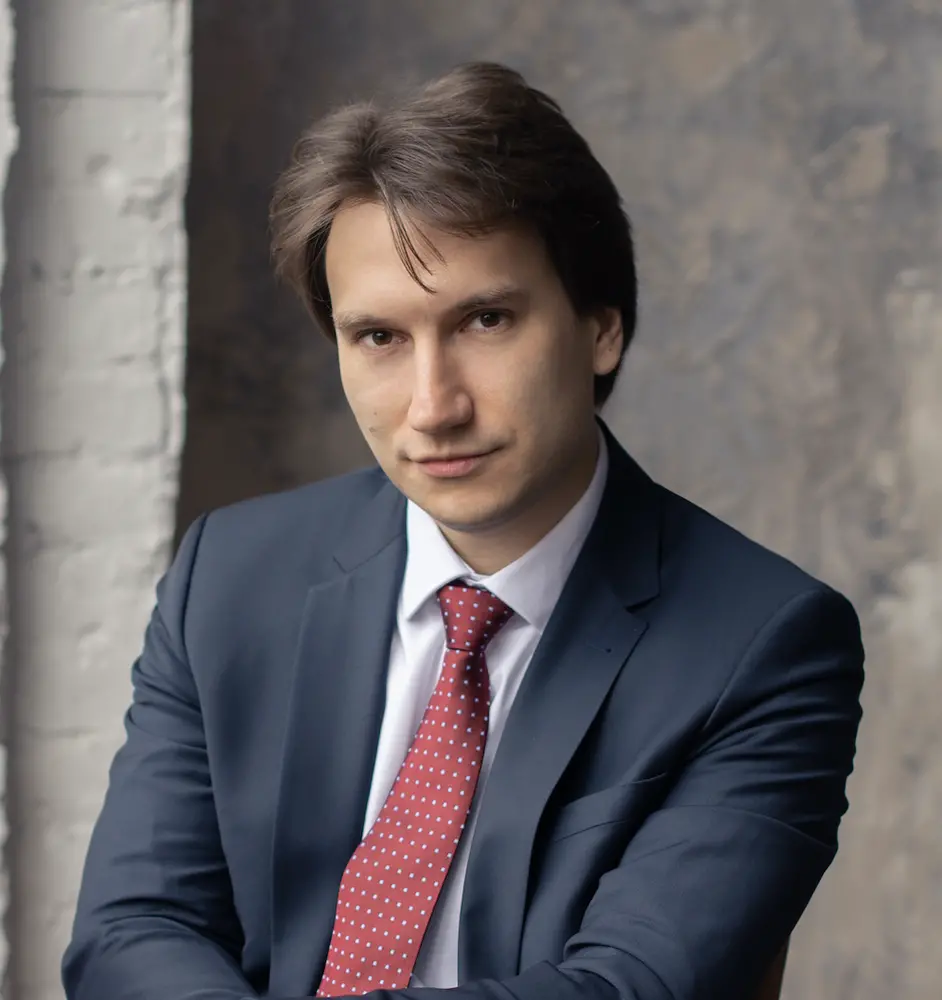
REEEC is pleased to welcome to our academic community Illinois Scholar at Risk Maxim Krupskiy.
Maxim Krupskiy joined the Illinois Scholars at Risk Program in the fall of 2024. He holds a Ph.D. in Philosophy, and is a human rights defender and attorney-at-law with more than twelve years of experience practicing law in Russia. Throughout his work, he has worked with many Russian and international NGOs, defending rights of refugees and asylum seekers, Russian civil activists persecuted for political reasons, and NGOs labeled as “foreign agents” by Russian authorities. His current research focuses on the comparative analysis of foreign influence transparency legislation and, in particular, “foreign agents” laws in Russia, Eastern Europe, Eurasia and beyond.
Since arriving at Illinois, Dr. Krupskiy has participated in several conferences and panels across the world, furthering his research and engaging with scholars across various disciplines. On October 7-8, Dr. Krupskiy participated as a key speaker in a discussion/forum held in Sofia, Bulgaria, to discuss the “foreign agents” bill introduced the day before - a repressive legal instrument that poses a serious threat to local non-profit organizations and any dissenters in general. The bill was proposed by the nationalist political party Revival (Възраждане) in order to stigmatize pro-democracy liberal-minded actors, mainly NGOs and independent media. The document is a deteriorated copy of Russia's repressive “foreign agents” law. The events were organized by BCNL (Bulgarian center for not-for-profit law), a non-profit organization that is part of ICNL, an international network dedicated to analyzing pro-avoidance issues facing civil society around the world.
Later in October, from the 23-25, Dr. Krupskiy attended Aleksanteri Conference 2024, an important annual academic event organized by the University of Helsinki. This year's conference was entitled “Resisting Authoritarianism in Eurasia. Civil Society and New Solidarities." He participated in the panel “Repressive Legislation and Political Agency: Comparative Perspectives” and gave a presentation on comparative analysis of foreign agent legislation in different jurisdictions - in Russia, Eastern Europe and Eurasia, as well as in the European Union as a whole and North America.
Soon after his return from Finland, Dr. Krupskiy traveled to Washington, D.C., where he was invited to participate as a panelist in a large seminar analyzing the contemporary challenges posed by the development of repressive “foreign influence transparency” legislation in jurisdictions such as Russia, Georgia, Bulgaria, Slovakia, Turkey, Nicaragua, and others. The event took place on October 31, and was organized by The National Endowment for Democracy (NED).
Next week, Dr. Krupskiy will be traveling to Boston for the 56th Annual Convention of the Association for Slavic, East European, and Eurasian Studies (ASEEES), where he will participate in the round table panel "Russian Criminal (In)Justice: Pending Liberation from the Soviet Past." He also authored an article "Foreign Agent Laws: New Challenges for Academic Freedom?" which is featured in the November 2024 Issue of ASEEES NewsNet.
In the spring semester, Dr. Krupskiy will be teaching REES 496, a new course entitled "Contemporary Autocracy in Theory, Law, and Practice," which will analyze contemporary autocratic practices and the challenges they pose to the democratic order regionally and globally. He will also be delivering a REEEC Noontime Scholars talk on Friday, February 21 entitled "'Foreign Agents' Legislation: Between Democratic Resilience and Weaponized Transparency." This talk will analyze the actively developing legislation on transparency of foreign influence and, in particular, laws on “foreign agents” in many countries of the world today from the perspective of their potential to counter illegitimate non-democratic interference and their risks from a human rights perspective. Pursuant to this dichotomy, the talk will analyze this legislation within the framework of "resilient democracy" as a tool to curb the "sharp power" practiced by non-democratic actors and catalyzing the erosion of democracy. On the other hand, it will discuss how, by exploiting narratives of protection of sovereignty, independence and national security, non-democratic actors can use this legislation as a means to fight dissenters, a tool for the weaponization of transparency.
We are thrilled to welcome Dr. Krupskiy to our REEEC community and look forward to continued collaboration with him throughout his time on campus.